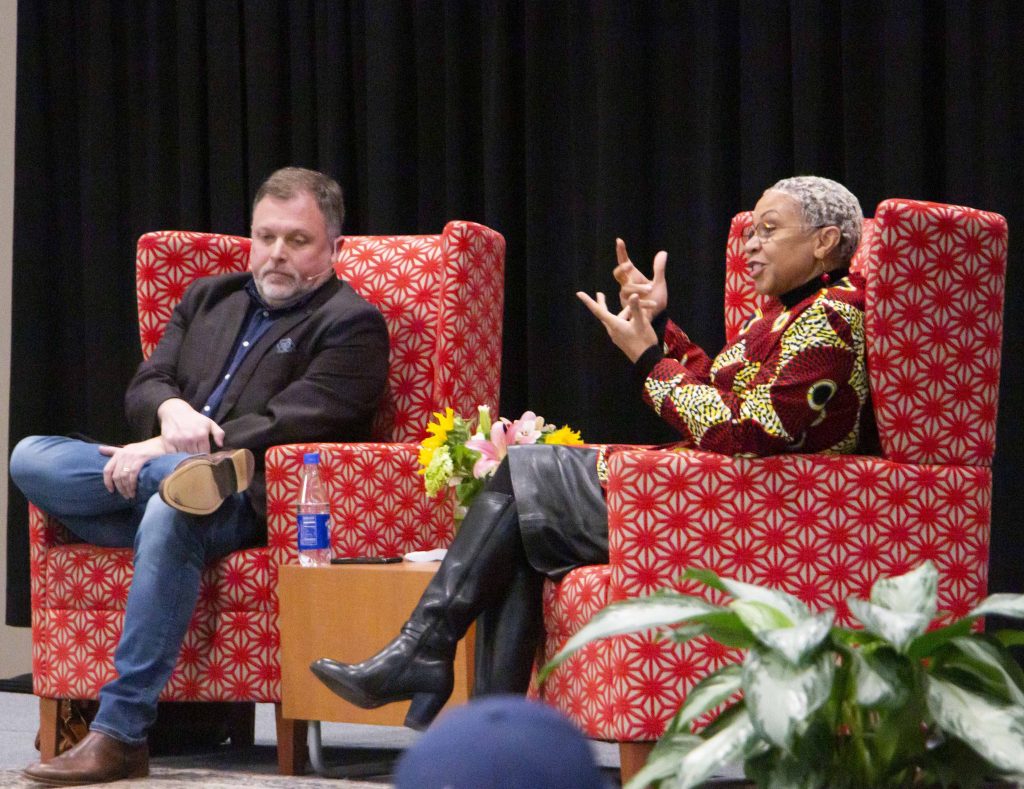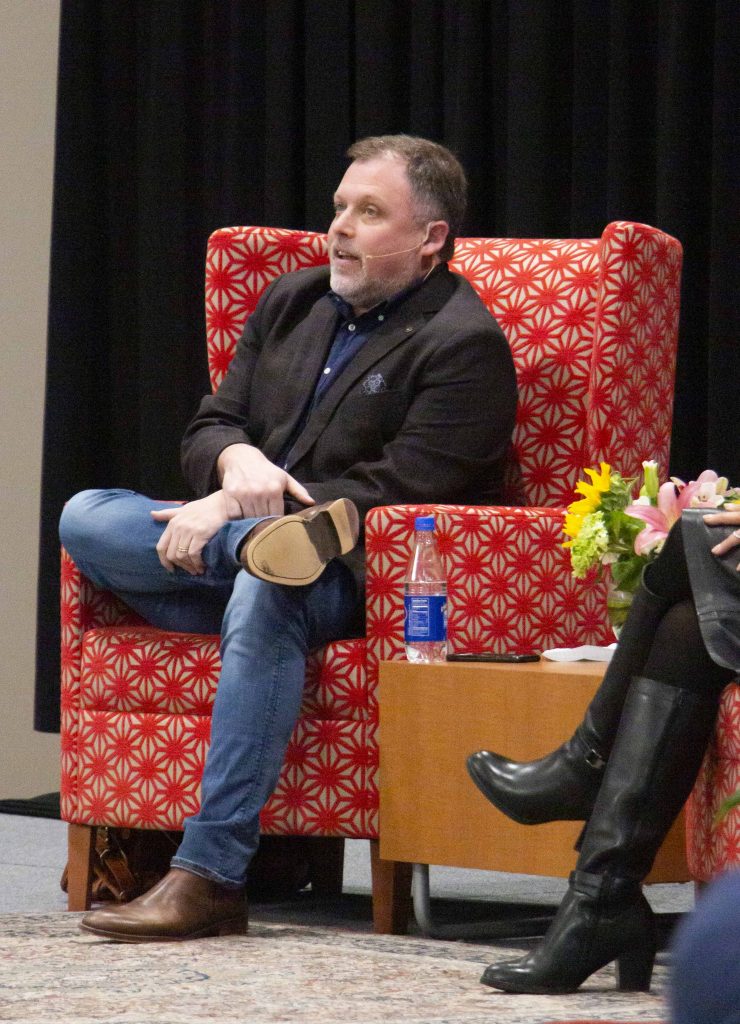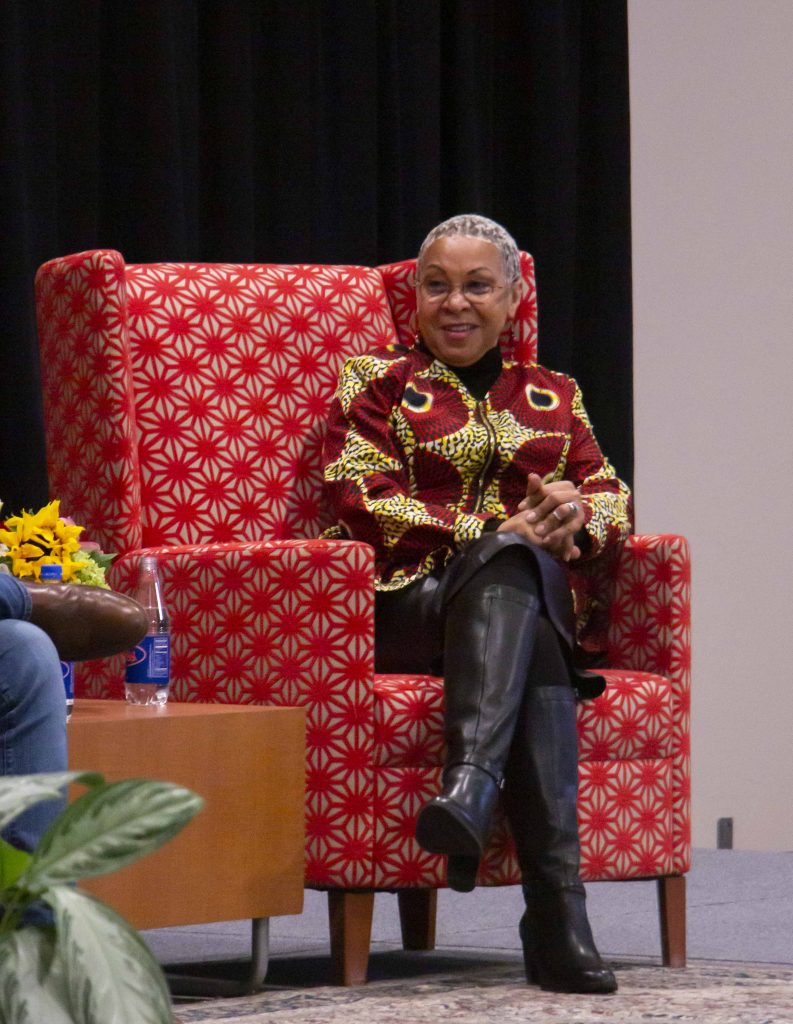
Co-keynote speakers Dr. Joy DeGruy and Tim Wise address the crowd regarding Black History Month related issues last night in the student union ballroom. Photo by Katherine Butler
Tim Wise and Joy Degruy, both prominent researchers and scholars on race, delivered the University of Mississippi’s Black History Month Keynote Address and highlighted how to address racial problems of the past, how those problems haunted the university this past weekend and what can be done to move forward.
Wise discussed Saturday’s Confederate marches and said while he often hears white people claim that African-Americans cannot let go of the past, the protests this weekend prove otherwise.

Tim Wise spoke last night on the reasons that different groups choose to uphold or ignore their history. Photo by Katherine Butler
“If somebody needs to let go of the past, it’s the white guys marching in defense of an army that was defeated 150 years ago,” Wise said.
The keynote address was presented hours after the university released a statement to the Ole Miss community saying the neo-Confederate groups caused concern for our campus. The university also invited students who were concerned to come to the keynote Monday night.
Katrina Caldwell, Vice Chancellor for Diversity and Community Engagement, said in reference to the end of Black History Month, there is more left to be done in the fight for equality.
“The events during this month have inspired those on the frontlines in the battle for racial equality to keep on keeping on,” Caldwell said. “They have been an opportunity to recruit new people, because there is still work to be done.”
Degruy, through her research, coined the term “Post-Traumatic Slave Syndrome,” which is a variation of Post-Traumatic Stress Disorder that has, through generations, perpetuated stress levels among slaves and their descendants.
She spoke about a situation which she called common among the African-American community. Degruy described are two sets of parents, one black and one white who have children that are best friends. When the parents complement each other’s kids, the black parent feels the need to downplay his or her child’s success. She said this is traceable to slavery.

One of two keynote addresses at the Black History Month panel was delivered by Dr. Joy DeGruy, who discussed her book “Post Traumatic Slave Syndrome”. Photo by Katherine Butler
“There’s a different response to success among white and black parents of their offspring, a defense mechanism,” she said. “This is a direct result of chattel slavery among black parents to make their children seem undesirable, in order to prevent the sale of their offspring.”
Wise, as a response to Degruy, explained the roots of this trauma from the opposite perspective of white supremacy.
“If trauma does something to the traumatized, by definition, it seems that being favored intergenerationally has an affect among generations,” he said. “White folks don’t want to look at the possibility that white supremacy has harmed us.”
Brittney Jackson, a senior integrated marketing communications major, said that hosting events like this is moving the university forward.
“It’s a positive decision for the university to have this event in the wake of last weekend’s events,” she said. “With so many things trying to hold us back, we’re trying to progress as a university, but we can only do this if the intentions are good. The university has to want things like this to have a good effect.”






